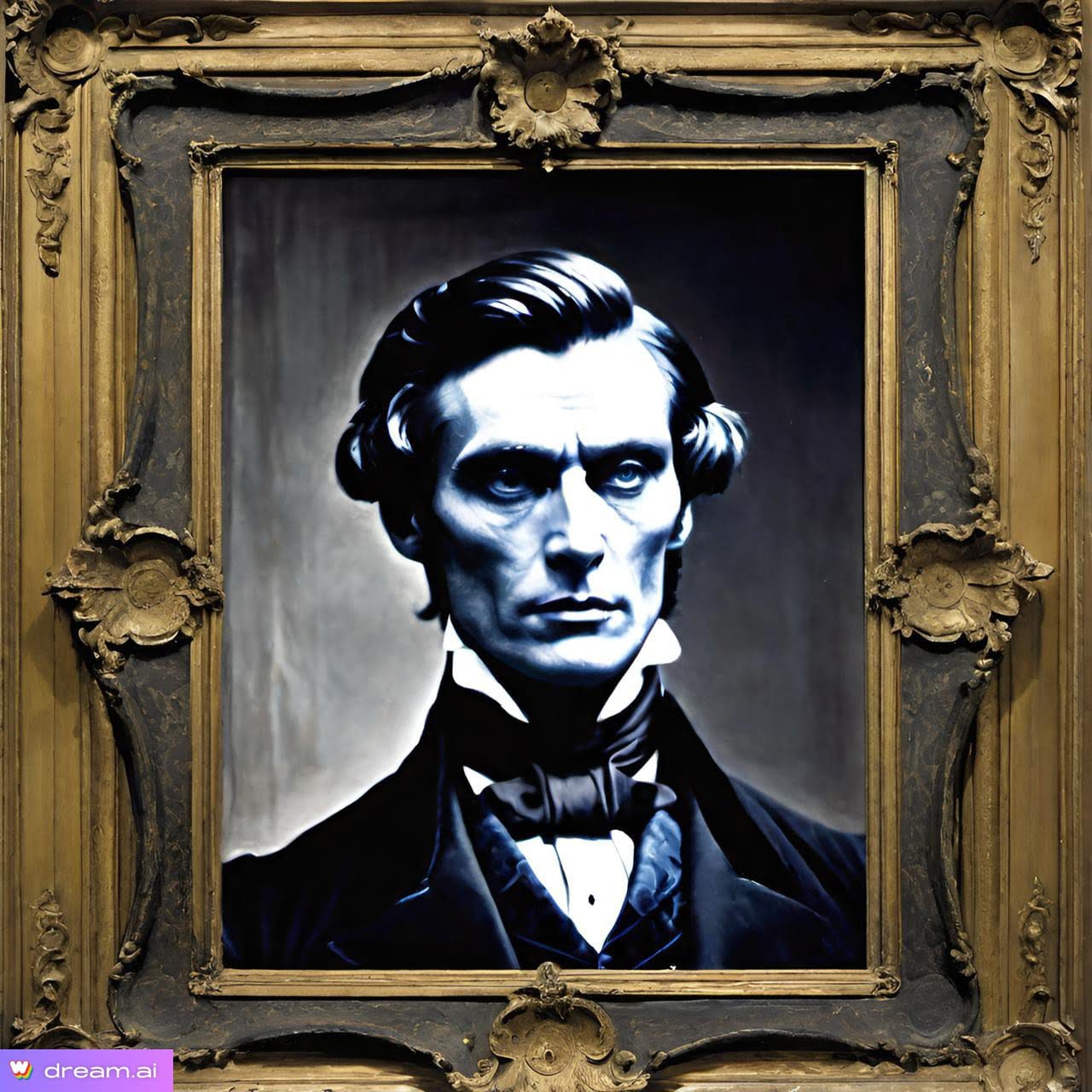Introduction to George Orwell’s 1984
Few literary works have resonated across generations and political landscapes as profoundly as George Orwell’s 1984. Published in 1949, this dystopian masterpiece is far more than just a novel—it is a prophetic warning about authoritarianism, mass surveillance, and the systematic erosion of truth. Orwell’s chilling portrayal of a world dominated by thought control, historical revisionism, and government surveillance has influenced not only literature but also political discourse, media studies, and discussions on digital privacy. Concepts like Big Brother, doublethink, and Newspeak have transcended fiction, becoming symbols of oppressive regimes and media manipulation. The novel’s legacy endures, shaping debates on state power, propaganda, and freedom of expression. For a detailed breakdown of the novel’s plot, themes, and historical significance, visit the Wikipedia page on 1984, which offers an in-depth analysis of Orwell’s timeless work.
The plot unfolds in a world where the Party, led by Big Brother, exerts absolute power over its citizens through surveillance, propaganda, and fear. Winston Smith, the protagonist, begins to question the Party’s omnipotence. His clandestine activities and budding relationship with Julia, a fellow dissenting Party member, lead them both into a perilous rebellion against the authoritarian rule. The novel traces their futile struggle for truth and freedom, which ultimately concludes in betrayal and reconditioning by the Party’s covert forces.
Prominent characters like O’Brien, an enigmatic Party official, and the Thought Police, reinforce the insidious control mechanisms employed to ensure ideological conformity. Major themes resonate through the novel, including totalitarianism, oppression, truth, and the distortion of reality. Orwell’s prescient vision illustrates how a regime can manipulate language and history to subjugate its people.
Upon its release, “1984” was met with critical acclaim for its chilling portrayal of what unchecked political power might achieve. Over the years, it has not only remained relevant but has also become a seminal text for understanding totalitarian dynamics in contemporary contexts. The vocabulary and concepts introduced, such as “Big Brother,” “doublethink,” and “thoughtcrime,” have transcended literary confines to become part of the cultural lexicon. Today, “1984” continues to serve as a cautionary tale about the consequences of absolute power and the fragility of personal liberties.
Defining Dystopian Literature
Dystopian literature explores complex and often harrowing visions of future societies, typically characterized by oppressive control, loss of individual freedoms, and pervasive propaganda. Such narratives serve as critical examinations of existing social, political, and economic structures by projecting them into exaggerated and often nightmarish futures.
A salient feature of dystopian literature is the depiction of oppressive government control. In George Orwell’s “1984,” this is exemplified through the omnipresent Party, which exercises absolute power over the populace. Surveillance mechanisms, such as the ubiquitous telescreens and the Thought Police, ensure constant monitoring and suppression of dissent. This pervasive control is designed not only to maintain order but to stifle any form of resistance or personal autonomy.
Another hallmark of dystopian narratives is the systematic erosion of individual freedoms. In “1984,” individualism is virtually eradicated, and citizens are stripped of personal liberties. The Party dictates every aspect of life, from one’s employment and relationships to personal beliefs and thoughts. The concept of “thoughtcrime” exemplifies the extreme lengths to which the state will go to control the minds of its citizens, criminalizing even the slightest deviation from orthodox ideology.
Propaganda plays a crucial role in maintaining the dystopian status quo. In Orwell’s novel, the Party manipulates reality through the Ministry of Truth, which incessantly produces and disseminates false information. Through slogans like “War is peace. Freedom is slavery. Ignorance is strength,” the Party inculcates contradictory beliefs, creating a populace that is easily controlled. This relentless bombardment of propaganda ensures that the official narrative is accepted as truth, regardless of its inherent falsity.
The themes of oppressive government control, loss of individual freedom, and pervasive propaganda are not only central to “1984” but are also common across the dystopian genre. These characteristics provide a lens through which readers can critically examine the potential consequences of unchecked power and the fragility of personal freedoms in their own societies.
The World of 1984: Totalitarianism and Surveillance
In George Orwell’s seminal work “1984,” the world is governed by an omnipresent totalitarian regime, meticulously controlling every aspect of human life. At the heart of this dystopian society is Big Brother, the ever-watchful, god-like figurehead whose presence looms over every citizen. The distinctive slogan “Big Brother is watching you” encapsulates the endless scrutiny that the people of Oceania endure. This is not merely a figurative expression—in the world Orwell constructs, surveillance is a tangible and invasive element, permeating all facets of existence.
The omnipotent Party employs the Thought Police, a secret organization that monitors and punishes even the slightest inclinations towards disobedience or independent thought. The Party’s control extends beyond public spaces into the private lives of individuals, ensuring that a sense of paranoia and fear pervades society. Citizens are conditioned to self-censor; conforming outwardly to survive under the regime’s iron fist while nurturing repressed thoughts that could lead to their demise. Orwell’s portrayal of constant surveillance starkly critiques the encroachment of government power on personal freedoms and privacy.
The literary and political significance of 1984 has been extensively analyzed by scholars, making it one of the most studied dystopian novels of all time. Beyond its depiction of surveillance and political oppression, the novel serves as a critique of language manipulation through Newspeak, a fictional language designed to eliminate independent thought. Orwell’s concept of linguistic control has been linked to real-world discussions on media bias, political spin, and the power of rhetoric in shaping public consciousness. If you are interested in exploring academic perspectives on 1984, Google Scholar provides access to numerous research papers that analyze Orwell’s work from literary, sociopolitical, and psychological perspectives.
Orwell’s narrative underscores how unbridled governmental control can strip individuals of their dignity, rendering personal autonomy meaningless. As the Party rewrites history and manipulates facts, truth becomes a malleable concept, further entrenching their power. “1984” thus serves as a poignant warning of the dangers of absolute political authority and the need for vigilance to safeguard democratic values against the threats of surveillance and loss of individual freedoms.
Themes of Repression and Resistance in 1984
George Orwell’s “1984” is a profound exploration of repression and resistance within a dystopian society. At the heart of the narrative, the themes of repression are intricately depicted through the omnipresent surveillance of Big Brother, the Thought Police, and the Party’s control over information and history. The protagonist, Winston Smith, embodies the struggle against these oppressive forces. His clandestine resistance, both intellectual and physical, symbolizes the desire for individuality in a society that demands absolute conformity.
George Orwell’s literary impact extends far beyond 1984. His novella Animal Farm offers a brilliant allegory of political corruption and totalitarian rule, drawing direct parallels to real-world revolutions and authoritarian regimes. His essays, such as Politics and the English Language, dissect the dangerous ways in which language can be manipulated to control populations—a theme deeply tied to both 1984 and modern political discourse. Orwell’s body of work continues to be a cornerstone in political thought, journalism, and literary criticism. For those who wish to explore his complete collection, including lesser-known essays and writings, The Orwell Foundation offers a comprehensive archive dedicated to preserving and analyzing his contributions.
Orwell cleverly uses these themes to issue a stark warning about the dangers of totalitarianism. The relentless surveillance by the Thought Police and the perpetual rewriting of history serve to eradicate dissent and stifle any potential for resistance. The futility of Winston and Julia’s efforts highlights the extent of the Party’s power and the almost insurmountable challenge of combating such a regime. This theme is tragically underscored by Winston’s eventual capitulation to the Party’s overwhelming influence, illustrating the potential for human spirit to be crushed by systematic oppression.
The themes of repression and resistance in “1984” are not merely confined to the narrative but extend to a broader socio-political commentary. Orwell’s vivid depiction urges readers to remain vigilant against the encroachment of authoritarianism in any form. Through the trials of Winston and Julia, the novel serves as a timeless reminder of the importance of safeguarding individual freedoms against the inevitable encroachment of authoritarian regimes.
Political and Social Satire in 1984
George Orwell’s “1984” is renowned for its incisive political and social satire. Through the use of irony, paradox, and dark humor, Orwell critiques the totalitarian regimes and social norms of his time, providing a trenchant commentary on the dangers of unchecked political power and the erosion of individual freedoms. One notable aspect of Orwell’s satire is his portrayal of the Party’s contradictory slogans: “War is Peace,” “Freedom is Slavery,” and “Ignorance is Strength.” These paradoxical statements expose the manipulative use of language by totalitarian regimes to control and pacify the populace.
Orwell employs irony masterfully in scenes where the protagonist, Winston Smith, navigates the oppressive environment of Oceania. For instance, the daily “Two Minutes Hate” is a state-run ritual where citizens express their hatred for perceived enemies of the Party. The dark humor lies in the absurdity of such a ritual designed to channel emotions and maintain loyalty to the Party, despite the population’s lack of genuine freedom and happiness. Orwell’s depiction of this societal norm serves as a biting critique of propaganda and the ways in which governments manipulate public sentiment for control.
Another striking example of social satire is the character of Big Brother, an omnipresent figure representing the Party’s surveillance and authority. The notion that “Big Brother is watching you” is both absurd and terrifying, highlighting the extreme measures taken by totalitarian states to monitor and suppress dissent. This exaggerated depiction underscores the dehumanizing effects of constant surveillance on the individual and offers a cautionary tale about the potential perils of intrusive governmental oversight.
By weaving together irony, paradox, and dark humor, Orwell not only critiques the political ideologies of his time but also offers a timeless reflection on the fragile nature of freedom and privacy in society. The satirical elements in “1984” continue to resonate, serving as a powerful reminder of the importance of vigilance and resistance against totalitarianism in any era.
Influence of 1984 on Contemporary Literature
George Orwell’s “1984” stands as a cornerstone in the canon of dystopian literature, echoing through contemporary works and providing a framework for examining the complex interplay between power, control, and personal freedom. This seminal novel’s unmistakable influence is apparent in the rich tapestry of modern dystopian narratives that continue to draw from its themes and motifs.
Numerous modern authors have paid homage to Orwell’s vision, embedding elements of “1984” within their own stories as a means of exploring contemporary issues of authoritarianism, surveillance, and individuality. Notable examples include Margaret Atwood’s “The Handmaid’s Tale,” which echoes Orwellian themes with its exploration of a totalitarian regime that exerts oppressive control over women’s bodies and freedoms. Similarly, Ray Bradbury’s “Fahrenheit 451” delves into the suppression of knowledge and the destructive nature of censorship, paralleling the ideological manipulation found within Orwell’s bleak vision.
More recently, Suzanne Collins’ “The Hunger Games” series and Veronica Roth’s “Divergent” trilogy have carved their own niches in contemporary young adult literature while resonating with Orwellian concepts. These narratives examine societies where individual dissent is quashed and citizens’ lives are meticulously monitored and controlled. The motif of surveillance is particularly relevant today, prompting comparisons to “1984” as society grapples with the rise of digital technologies and their implications for privacy and autonomy.
The enduring relevance of “1984” in contemporary literature is largely attributable to its unflinching portrayal of totalitarianism and the human spirit’s resilience against oppressive forces. Orwell’s cautionary tale continues to provide a fertile ground for writers to engage with, allowing them to critique and reflect upon the perennial struggles for freedom and truth.
As long as humanity faces threats to individual liberty and privacy, the influence of “1984” will persist, seeping into the collective consciousness of literary creativity and ensuring its lasting legacy in the fabric of contemporary dystopian literature.
1984’s Relevance in Today’s World
George Orwell’s 1984 remains profoundly pertinent in the 21st century, its themes resonating with critical aspects of contemporary life, particularly in technology, politics, and privacy. The novel’s exploration of a totalitarian regime, pervasive surveillance, and the manipulation of truth reflects a reality that feels increasingly familiar in our modern world.
Technological advancements have enabled unprecedented levels of surveillance and data collection, echoing Orwell’s vision of a society under constant watch. Governments and corporations alike gather vast amounts of personal data, often with little transparency. The concept of “Big Brother” manifests in various forms today, from ubiquitous CCTV surveillance to the extensive digital footprints we leave online. Social media platforms, in particular, scrutinize user behavior, raising privacy concerns eerily reminiscent of the omnipresent telescreens in 1984.
Political dynamics also reflect Orwell’s dystopian projections. The rise of authoritarian regimes, the erosion of democratic norms, and the spread of disinformation challenge the fabric of truth and freedom. Terms like “fake news” and “alternative facts” highlight the struggle over reality and truth, reminiscent of the Party’s control over facts and historical records in 1984. In various countries, the crackdown on dissent, free speech, and independent journalism echoes the oppressive tactics of Orwell’s fictional regime.
Additionally, the manipulation of media and the control of information are pivotal themes in Orwell’s narrative that resonate with current times. The proliferation of misinformation and the deliberate shaping of public opinion through biased or false information underscores the relevance of 1984 in understanding contemporary challenges. Orwell’s concept of “Newspeak” parallels the use of ambiguous or euphemistic language in modern political discourse, aiming to distort reality and silence opposition.
In sum, 1984 serves as a powerful lens through which we can examine and critique present-day societal developments. It compels us to remain vigilant about the preservation of privacy, the integrity of information, and the protection of democratic freedoms.
Conclusion: The Legacy of 1984
“1984” by George Orwell continues to hold immense relevance in understanding the dangers posed by totalitarian regimes. Its portrayal of a society where government surveillance and public manipulation suppress individual freedom offers a stark warning about the perils of unchecked power. The narrative of Winston Smith, facing the oppressive regime of Big Brother, resonates deeply with readers, shedding light on the importance of vigilance in preserving democracy and human rights.
The blog post has scrutinized the novel’s significant themes, such as the subjugation of truth, the manipulation of language, and the loss of individual autonomy. These themes, though crafted in a fictional dystopia, reflect real-world situations that many societies have faced or continue to face. The novel’s intricate depiction of a controlled and uniform society prompts readers to reflect on their own cultural environment and the liberties they might take for granted. Furthermore, Orwell’s innovative use of language—including terms like “doublethink” and “Newspeak”—has entered our lexicon, underscoring the novel’s enduring impact on our understanding of linguistic and psychological manipulation.
The lasting legacy of “1984” lies not only in its literary brilliance but also in its continued relevance to discussions around surveillance, freedom, and authoritarianism. As modern societies grapple with issues related to data privacy, governmental transparency, and civil liberties, Orwell’s dystopian vision provides a crucial framework for understanding and critiquing contemporary political landscapes. It’s a reminder of the enduring struggle for freedom and the vigilance required to maintain it.
Within both literary and cultural history, “1984” maintains a prized position as a touchstone for examining the implications of totalitarianism and the means through which it can be resisted. As such, it remains a vital work, inviting each new generation to question and contemplate the power dynamics within their own societies, ensuring that its cautionary tale endures.



